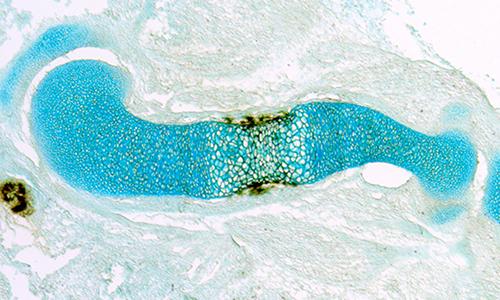The primary research focus of the Karner Lab is to create and utilize novel mouse genetic models to study the role of cellular metabolism during skeletal development and disease. We combine conditional and transgenic mouse models with primary cell culture, biochemistry, transcriptomic and metabolomic approaches to understand the contributions of various metabolic pathways to the development and maintenance of the skeleton. Trainees take a leading role in one of several projects in the laboratory. These projects include interrogating the role of amino acid metabolism in cell lineage determination; identifying modes of action and regulation of amino acid metabolism in skeletal cells in development and various diseases; identifying the molecular usage of individual amino acids during cellular differentiation; and identifying new osteoanabolic strategies to stimulate bone formation in patients with osteoporosis. We currently have federally funded projects that focus on the individual amino acids glutamine and proline in osteoblasts but we are always interested in the role of other amino acids and other cell types including osteoclasts, adipocytes, and chondrocytes.
